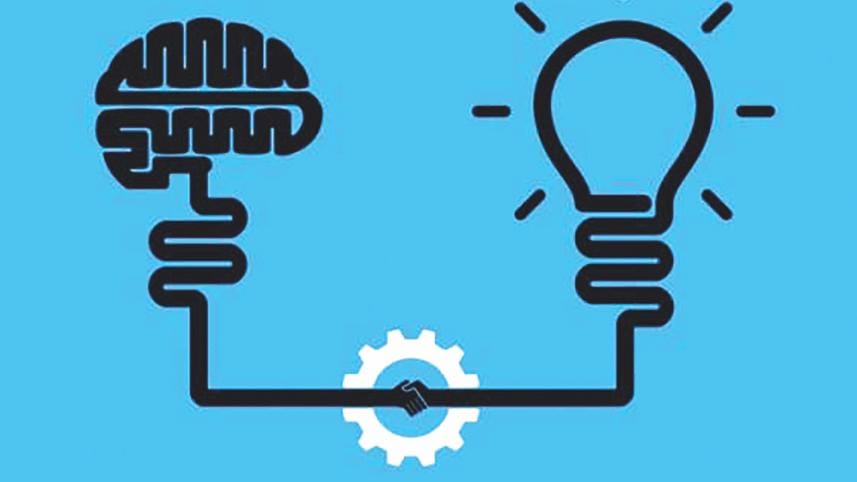Can entrepreneurship be taught at universities?

I often joke saying, “We Bangladeshis may have taught the world what BBA is! There really weren’t many before, (if any at all).” Business schools may hate me for this. Surely, one can learn the various aspects of running a business, however, I am a skeptic when it comes to the idea of “learning” entrepreneurship.
As the renowned idiom says, “You can take a horse to the water, but you can’t make him drink it,” it is important to understand that business and entrepreneurship are different. Most successful entrepreneurs in the past did not study entrepreneurship, go to a business school, or even go to university. Business as a major, evolved from the need to be able to run systems in an existing business, to improve the functions and gain profit margins. I strongly believe that when it comes to products and service delivery, the businessmen replicate and the entrepreneurs innovate.
My intention here isn’t to belittle businessmen, because they reinvent processes and systems every day. However, entrepreneurs innovate and find the product market fit. Not only that, in order to scale up their businesses, they have to face challenges in policy and business models, and manage investors and regulators, among other duties. Surely, businesses have to do the same, except for product innovation and market ready challenges. In a country like ours, the terms businessmen, businesswomen and entrepreneurs surely have a thin line of differentiation compared to those in developed countries, where they are largely different as the market forces and finances have kept the big corporations alive.
So what can we teach?
Students need to learn the aspects of business management; from accounting to marketing, etc. However, for me, entrepreneurship is a mindset and a mix of soft and hard skills. When it comes to entrepreneurship, it is necessary to nurture a different mindset.
It starts off with the ability to take calculative risks; just because it makes sense as a great idea and looks rational, there is no guarantee that it will be adapted by the users. I often come across lofty ideas which cannot take constructive criticism. Don’t get me wrong, students should be allowed to dream and create unrealistic ones but, they should also be able to accept people giving constructive criticism as it shall create the space for learning rather than enforcing their own thoughts. Give students the space, but also give them the reality check. Teachers should constantly balance it out.
Then, the students should be trained to be able to learn from different sources, to be able to adopt and adapt, to understand people, to be able to think critically, have strong decision-making skills and much more. In today’s world, no one lives in silos, interdisciplinary interactions are a must, where students from business, science and the arts must work together in real life projects. These not only give them the life skills of people management but also an understanding of various functions of an organisation.
Most universities have assigned counsellors who are often busy with assigning subjects. I think the objective of orientation is for it to be a space where teachers and students can interact and make it clear to the students as to why he or she is taking this subject. What their interests are and how these subjects may enrich future career prospects are crucial.
We surely need to retrain teachers to be facilitators of learning. This is challenging not only for institutions but parents too. Students’ performances have been judged solely based on their grades. Remember how, as a child, our class teacher interacted with other subject teachers and then wrote a progress report for our parents? Why did we forget that age-old practice? I know it is easier said than done but that surely had its upsides. There is a dire need to retrain teachers. Now, this may anger many in the teaching community. However, I strongly believe that in this era of information, teachers need to be facilitators of knowledge, rather than a repository. These days anyone and everyone can Google information if they want to know. Universities and teachers must channel teachings to transform how individuals think, learn and innovate.
Now, one may say that what I mentioned here, is generic for all and not just entrepreneurs. That is my argument: we trained a whole nation to be ready for the job market, and now we want everyone to be entrepreneurs. The honest truth is that we are a very entrepreneurial nation. However, the current education system seems to be curtailing that risky mindset. With the standardisation practices and lack of constant retraining of teachers, we are unable to nurture skills that are required for us to be better than machines in the incoming fourth industrial revolution.
Be it job holders or entrepreneurs, we need to nurture an entrepreneurial mindset that encapsulates the skills of the future. To summarise, if we want the mindset to thrive, educational institutions must continuously facilitate critical thinking abilities, cognitive flexibility, creativity, collaboration and empathy. Further skills, which the entrepreneurial mindset needs, include the risk-taking abilities, stress management, work-life balance, conflict resolution, time management, and communication. Many of these are already in practice, but teachers need to continuously facilitate and nurture these traits through the courses they teach.
Saif Kamal is the founder of Toru Institute of Inclusive Innovation.



 For all latest news, follow The Daily Star's Google News channel.
For all latest news, follow The Daily Star's Google News channel.
Comments